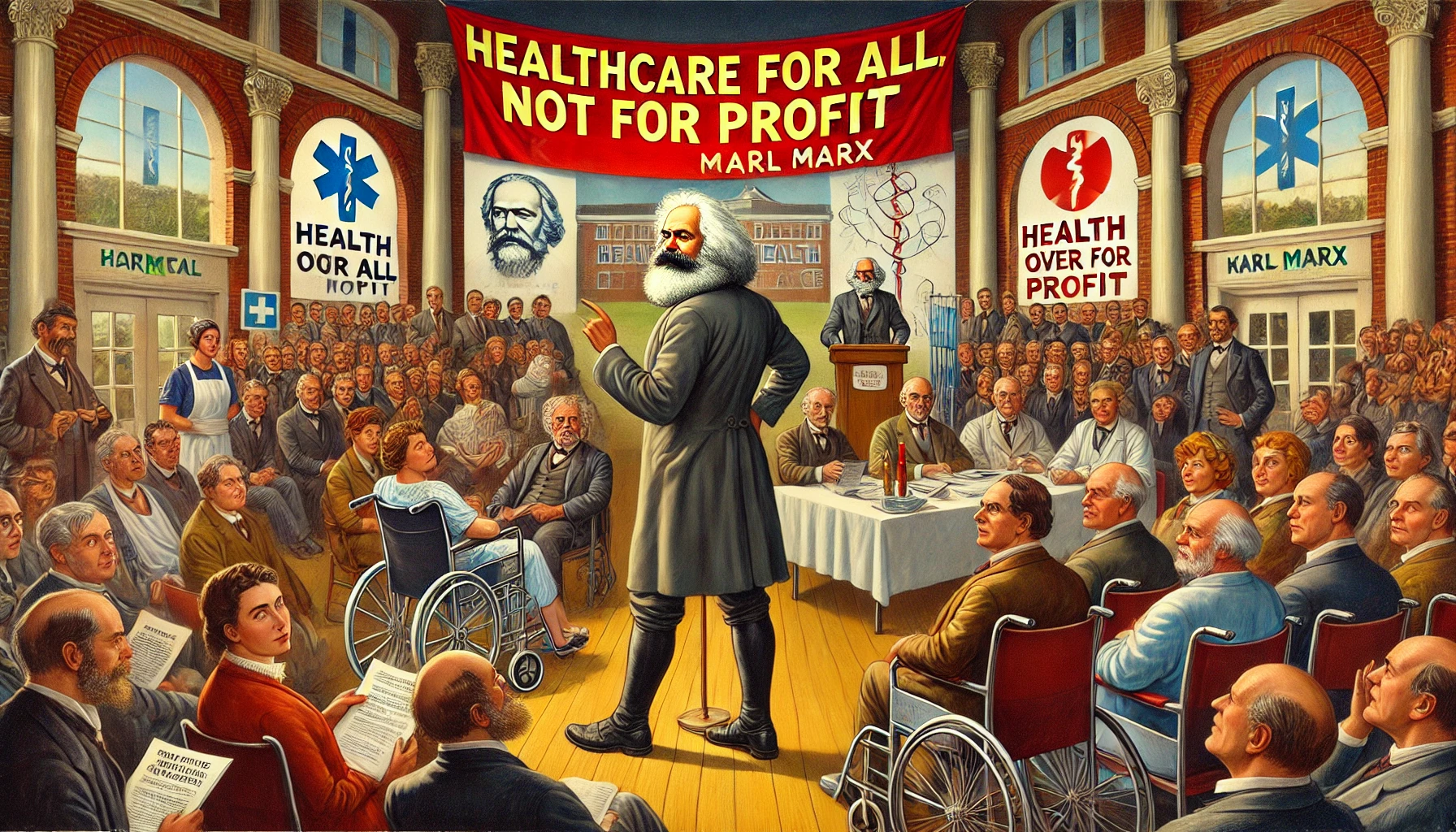Engels and the Worker’s Health: The Case for Universal Healthcare
Friedrich Engels, co-author of The Communist Manifesto, was deeply concerned with the health and welfare of the working class. In his seminal work, The Condition of the Working Class in England, Engels documented the dire living and health conditions of industrial workers. He identified poor health outcomes as a direct consequence of capitalist exploitation, where the pursuit of profit overrides concerns for worker welfare.
Engels argued that the health of the working class is a public issue, not a private one. Illness and injury in the workforce disrupt productivity, but more importantly, they dehumanize workers, reducing them to mere tools for profit. He called for a system where health is viewed as a public good, accessible to all regardless of class.
A universal healthcare system, in Engels’ view, would address the systemic inequities that leave workers vulnerable. By centralizing healthcare under public control, society could ensure that resources are allocated based on need rather than ability to pay. Engels’ analysis remains profoundly relevant in today’s debates on healthcare reform, as disparities persist in capitalist systems worldwide.
For Engels, socialized medicine isn’t just a moral imperative; it’s a cornerstone of a functional, equitable society. Without it, the cycle of exploitation and inequality remains unbroken.
Originally posted 2024-08-14 05:51:11.



